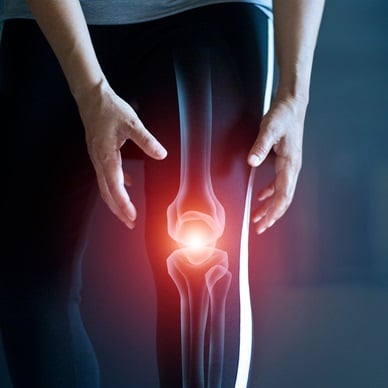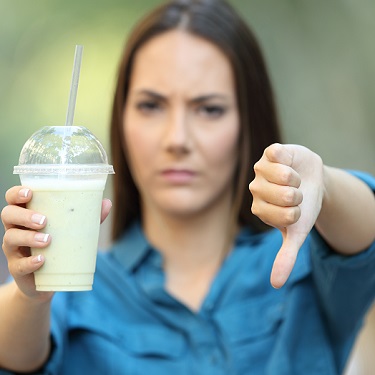What Is a Food Coma (And 6 Ways to Avoid It)

Whether you call it a food coma, sugar crash, food baby, overfull, or stuffed, we’ve likely all experienced what scientists call “postprandial somnolence.” Postprandial somnolence is that typically super sleepy feeling you get after a big meal, especially one laden with sugar, carbohydrates, and alcohol. These are all things that will slow you down, and this type of meal can leave you feeling lethargic rather than energized after your meal.
But, should you feel tired every time you eat something? The answer is no!
Yes, a big meal may cause you to feel sleepy now and then, but when that’s accompanied by other symptoms, it may be time to see what’s really at play.
What is a Food Coma?
A food coma, or postprandial somnolence, can occur when you’ve had a bit too much to eat and feel lethargic and sleepy afterward. Think about all the naps that are taken right after a big Thanksgiving meal. It’s not just the tryptophan in the turkey at play. The tryptophan is only one part of the picture.
Tryptophan is a naturally occurring amino acid that helps balance nitrogen and produce niacin (in the presence of B vitamins) and, indirectly, serotonin, a feel-good, relaxing chemical.
While you may associate tryptophan with turkey (and you’d be correct), several other foods contain it as well, such as tofu, fish, chicken, eggs, milk, some nuts and seeds, and more. Tryptophan isn’t all bad. In fact, it’s healthy and necessary, but you may occasionally feel some of the side effects, which are less pleasant, such as your typical food coma, heartburn, nausea, gas and diarrhea, and other symptoms.
All that said, tryptophan is not the only culprit when it comes to a food coma. There are other issues at play, including your blood sugar levels, blood flow, meal size, meal composition, hypoglycemia, insulin resistance, and inactivity after a meal.
RELATED: Collagen Doesn’t Work (Unless…)
What Causes a Food Coma?
As often as we eat, why is it that sometimes you experience a food coma and other times you don’t? Not all meals will cause you to experience the severe drowsiness that can come from an indulgent meal. But when it does happen, there are several likely causes.
All the excess carbohydrates you consume in a large meal can lead to what’s known as an “insulin spike.” This is where your body dumps insulin into the bloodstream to deal with the onslaught of carbohydrates and sugars. This can leave you feeling drained and exhausted as your body combats the fluctuations.
Also, to digest all the food you’ve eaten, your body will send a lot of blood to your digestive tract, and that can have you experiencing brain fog as your brain gets less blood flow and your parasympathetic nervous system kicks in, leaving you lethargic.
How to Prevent a Food Coma?
Not a fan of postprandial somnolence? Well, there are several things you can do to avoid feeling overfull and sleepy after eating.
1. Eat less at each meal
This may mean eating smaller meals more often throughout the day instead of several large meals. A large meal can leave you feeling overfull and lethargic, whereas several small meals spread out over the day will allow your body to assimilate each meal and bounce back quickly after releasing smaller amounts of insulin.
2. Limit your water intake with meals
This will automatically help you feel less full and allow your digestive enzymes to process what you eat without being diluted by too much liquid. That said, it is important to drink plenty of water throughout the day when you’re not eating to stay fully hydrated. Plus, drinking enough water will help you feel full, which can help prevent overeating.
3. Get some light exercise after your meal
You might find it helpful to take a gentle walk after eating to remain upright for a while after eating to allow your digestion to kick in and your circulation to shuttle vital nutrients where they need to go.
4. Eat light foods
Eating light foods means staying away from heavy starches and carbs. Instead, make an effort to fuel up on healthy greens, fibrous veggies, quality proteins, and healthy fats. This combo, with the heavy carbs excluded, is a great way to feel light and energized after eating. You won’t be weighed down or slowed by the excess carbs. Your body will focus on burning fats for fuel, and the healthy fats and proteins will keep you feeling full and with plenty of energy.
5. Limit alcohol
This may seem obvious, but alcohol itself can leave you feeling drowsy, and when you add that to a high-carb, sugary meal, it’s a recipe for a food coma just waiting to happen.
6. Always get enough protein
Limiting the carbs and ensuring you get ample protein in your diet will go a long way toward warding off the sleepies. And if you are going to eat carbohydrates, make sure to always combine them with a portion of protein to help keep blood sugar levels stable.
There’s a reason so many countries have a “siesta” after the mid-day meal. Many European countries tend to make lunch their big meal of the day, wrapping up their days with a small dinner in the evening. You’ve probably heard the phrase, “Eat breakfast like a king, lunch like a prince, and dinner like a pauper.” This refers to the tradition of tapering your meals down as the day progresses so the bulk of your calories are consumed when you are typically most active: during the day. The thought is that you don’t need as much fuel in the evening, thus the smaller feeding. If you want to avoid a food coma, perhaps give all of these options a try.




 US Doctor: "Eating This Every Day Can Snap You Into Ketosis"
US Doctor: "Eating This Every Day Can Snap You Into Ketosis" 3 Key Nutrients to Help Lubricate Your "Tin Man" Joints
3 Key Nutrients to Help Lubricate Your "Tin Man" Joints AVOID Plant-Based Protein Powders (unless...)
AVOID Plant-Based Protein Powders (unless...)

